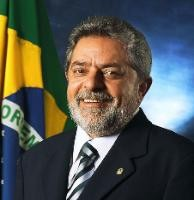I mentioned last week that Poland’s shift toward EU defense had become more pronounced since the U.S. shift on European-based missile defense. But Nicolas Gros-Verheyde’s (French-language) summary of the French-Polish joint declaration on security cooperation really underscores that point. Time will tell how all of this will play out in terms of concrete developments. But as Gros-Verheyde observes, the potential for a French-Polish engine driving further EU defense cooperation is clearly in place. The declaration covers bilateral security cooperation in terms of training and industrial partnership, but places it in the context of European security. While it makes a point […]
The Americas Archive
Free Newsletter

TORREÓN, Mexico — Ever since Mexico’s Felipe Calderón took office in 2006, his presidency has been irrevocably identified with one issue more than any other: security. Calderón has staked the credibility of his administration, not to mention the country’s bilateral relationship with the United States, on attacking drug runners, dismantling kidnapping syndicates, and making Mexico an overall safer country. But despite some improvements in Mexico’s institutional capacity to fight crime, Calderón’s security gamble has largely backfired. The present levels of drug-related violence are worse than ever before, and Ciudad Juárez, across the Rio Grande from El Paso, has become the […]

For roughly four decades, a clear foreign policy rule set has existed between the United States and Latin America, centering largely on the question of counternarcotics. Starting with Richard Nixon’s “war on drugs,” an explicit quid pro quo came into existence: U.S. foreign aid (both civilian and military) in exchange for aggressive Latin American efforts to curb both the production and trafficking of illegal narcotics (primarily marijuana and cocaine). By virtually all accounts, that logistics-focused strategy has proven to be a massive failure. America’s focus on interdiction and prohibition has not stemmed domestic drug abuse. Instead, all indications are that […]
Good governance? Twenty-seven titles.Infrastructure reconstruction? The new Yankee Stadium.Legitimacy? The pinstripes. Nuff said. And still, this insurgency known as Red Sox Nation survives. Proof that some minor irritants, an empire is better off learning to live with than trying to destroy. Update: Plus, winning hearts and minds!!
An Italian judge has convicted 23 Central Intelligence Agency officers of participating in the kidnapping and rendition of an Egyptian cleric in Milan in 2003. The trial marked the first time the controversial anti-terrorism tool, known as extraordinary rendition, was challenged anywhere in the world. “The message of this important ruling — to nations, governments, institutions, secret services, etc. — is that we cannot use illegal instruments in our effort against terrorism. Our democracies, otherwise, would betray their principles,” the lead prosecutor, Armando Spataro, told the Los Angeles Times. All of the Americans were tried in absentia, and it is […]
U.S. Assistant Secretary for Western Hemisphere Affairs Tom Shannon held a briefing via DVC from Tegucigalpa, Honduras. Shannon said that he and his team are in Honduras to help foster a national dialogue that they hope will lead to a fair and legitimate election. “We respect Honduras’ sovereignty, we respect Honduras’ democracy…and at the end of the day, the solution to this crisis, which is Honduran in origin, will be Honduran also,” he said.
I learned a couple interesting things from this Latin American Herald piece on U.S.-Bolivian relations. The first is that Philip Goldberg, the former U.S. ambassador to Bolivia who was kicked out for allegedly spying, was since nominated by President Barack Obama as assistant secretary of state for intelligence and research. Independent of the merits of the charges against Goldberg, that’s kind of funny, no? The other thing I learned is that the negotiations toward re-establishing diplomatic relations with Bolivia are progressing well enough for Bolivian Evo Morales to adopt a relatively conciliatory tone. That’s good news, as far as I’m […]

Brazil has had a lot to celebrate recently. Its economy has been growing at a slow but healthy clip, thanks to prudent fiscal policies that have helped it weather the financial crisis better than many. The nation has taken on an increasingly important role in matters of regional diplomacy and has emerged as the de facto political and economic leader of Latin America. Foreign leaders as varied and diverse as U.S. President Barack Obama, Iranian President Mahmoud Ahmadinejad, and South African President Jacob Zuma have all recently met with Brazilian President Luiz Inácio Lula da Silva in efforts to strengthen […]

Today, German Chancellor Angela Merkel will become only the second German leader in history to give a speech to both houses of the U.S. Congress. One issue she may avoid raising is her new coalition government’s controversial commitment to remove all U.S. nuclear weapons from German soil within the next few years. By formally adopting the commitment as a core element of its platform, the German government has dramatically focused attention on what has until now been a low-key debate within NATO over whether to retain nuclear weapons as a core element of the alliance’s strategy. Although the precise number […]

Ten years ago last month, the U.S. Senate failed to approve the Comprehensive Test Ban Treaty. A decade later, the dangers posed by the potential spread of nuclear weapons and materials to additional states and terrorists have increased dramatically. Stopping proliferation will require a global effort — and an early, essential step in that effort must be U.S. ratification of the test ban. The test ban is clearly consistent with U.S. security interests. Because the United States does not conduct nuclear tests and has no plans or the need to do so, the United States should take advantage of the […]
